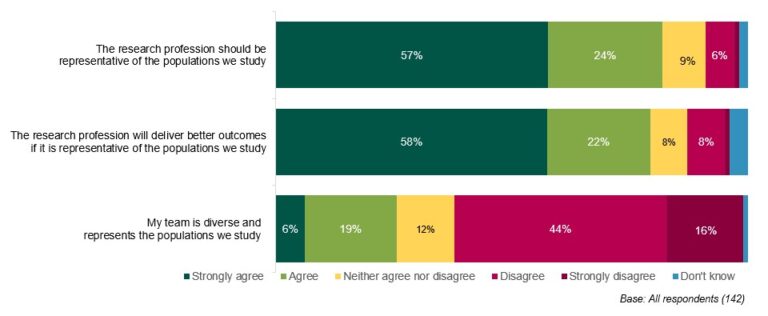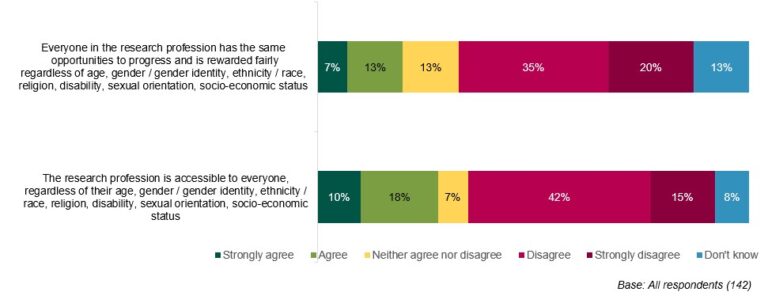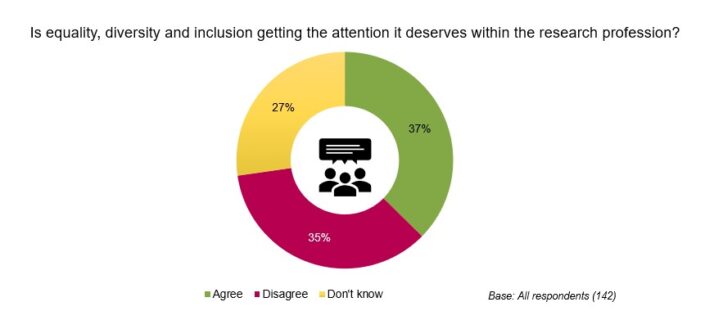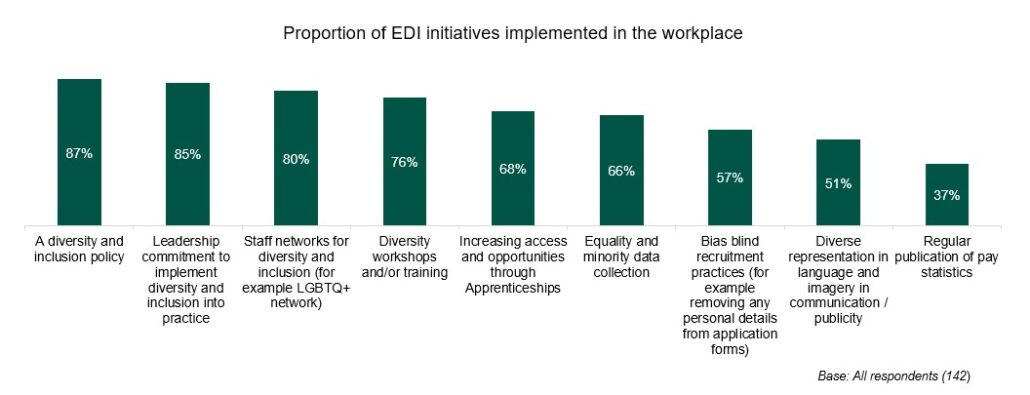
Equality, diversity and inclusion (EDI) is a subject that has been bubbling under the surface for several years, before being catapulted into our public consciousness in 2020. It’s a topic that is very close to our hearts at IFF and top of our corporate agenda which is why it felt the right choice for the focus of our recent seminar series event.
During the planning stage, we discussed whether we could rightly lead an event on EDI, being at the early stages of our EDI journey. Yes, we’d signed the MRS’ CEO Pledge – a Manisfesto for Opportunity, formed an EDI working group and engaged a diversity consultancy to help us identify our blind spots and were in the process of reviewing our recruitment practices. But were we ready to publicly talk about this important topic and lay our cards on the table?
True to our profession, we decided we needed data to help us make the decision.
We wanted to identify the scope of the problem within the research industry. Are researchers representative of the populations they serve? What barriers exist to prevent diversity and inclusion? And what is the sector doing to address any shortfalls?
A little desk research later, we found that there was surprisingly little insight on the topic. And most of what had been conducted focused on research agencies – those conducting the research. But what about the people who commission research? Are the organisations that invest in research that impacts us all employing inclusive work practices? Do they support diversity? And do the individuals who design the studies and manage the flow of information have an understanding of the opportunities available to their audience?
We decided to find out. So early this year we ran a survey inviting research commissioners to feedback on this important topic. Disclaimer from the off – it was a small study, encompassing 142 responses so the results can only be considered indicative at best. However, it did yield some interesting findings:
- 80% believe that the research industry should be representative of the populations that we study, and that we will achieve better outcomes if we are;
- 88% believe that their teams are inclusive and that they give space for everyone to have a voice and participate.
- Equality, diversity and inclusion is a focus for most teams (62%), most won’t tolerate discrimination (81%) and few rarely witness or experience discrimination. And, thankfully, most organisations are taking action in terms of having policies in place, with statements of commitment from leadership and diversity training in place for all
- However, few think their teams are representative of the populations they study (25%) or that the ground is fertile for them to become so: only 28% agree that the profession is accessible to everyone and 20% agree that it presents everyone with the same opportunities to progress
And therein lies the frustration. The sector has bought the argument that something should be done. It’s bought the story of the likely positive impact. Its individuals and teams are largely committed to change… but the reality doesn’t appear conclusively to be that change is happening.
While we paint that in a deliberately negative light, and the story would likely have been very different had we asked those same questions even a few years ago, the truth is that while the argument is largely won, there are still people to be convinced. There is still discrimination to be combatted. And those of us who are committed to making a change know that change has to come at a cost both to organisations and to individuals.
And that’s what makes this topic so difficult and emotive. It’s what makes it such an important discussion to have. And the reason we decided to go ahead with this event. Yes, we’re not at the place we’d like to be as an organisation yet, but we’re moving in the right direction. And this is evidently a conversation that needs to be encouraged. So, we’ll own our position and seek the support and accountability of our sector as we work to make IFF a place we can proudly cite as a truly diverse organisation.
The results of our survey, in more detail….
And because we’re researchers, and love a good chart, you can find more detail of our survey findings below.



